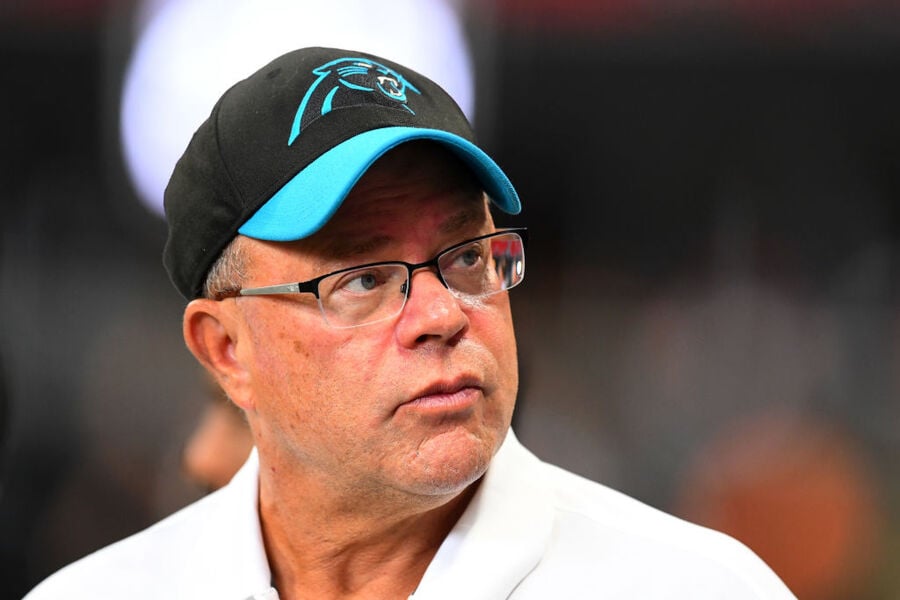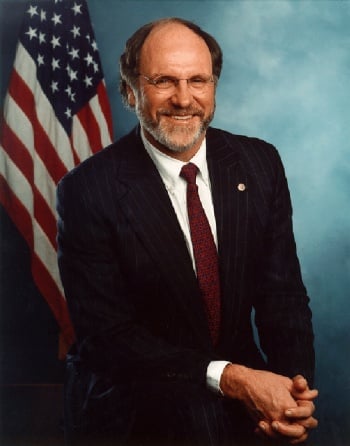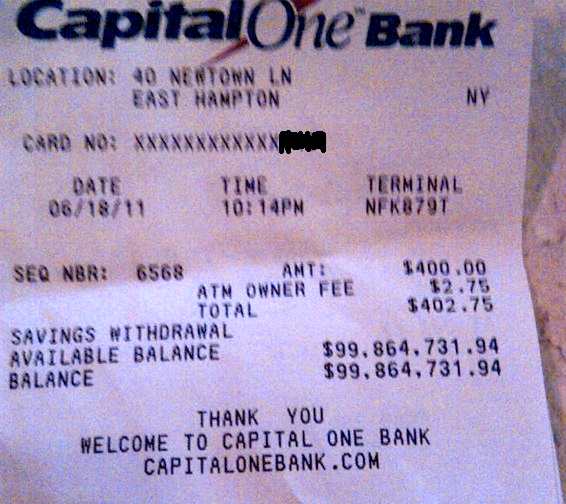If you live outside of Pittsburgh or North Carolina, you probably don't know the name David Tepper. For Pittsburghers, Tepper is the hometown boy done good. A hard-working kid from humble beginnings who worked his way up to the top-top-top of the finance industry, made a fortune then gave large chunks of that fortune to local charities and institutions which now bear his name. For North Carolinians, Tepper is the guy who in 2018 paid a then-record $2.275 billion for the Carolina Panthers NFL team. But even outside of Pittsburgh and North Carolina, Tepper is a fascinating and inspirational guy. Especially for anyone who dreams of getting sweet revenge on a former terrible boss.
Early Life
David Tepper was born in September 1957 in Pittsburgh. His father was an accountant. His mother taught at an elementary school. He attended Peabody High School in the East Liberty section of Pittsburgh, followed by the University of Pittsburgh. After graduating, he landed a job working as a credit analyst for Equibank. In 1980, David moved back to Pittsburgh to enroll at Carnegie Mellon University's business school to earn a Master of Science in Industrial Administration, the equivalent of an MBA at the time. After receiving a $67 million donation from David in 2013, CMU renamed its business school the Tepper School of Business.
Tepper graduated from CMU two years later and landed a job at Republic Steel in Ohio. After another two years, he moved over to Keystone Mutual Funds in Boston. After one year in Boston, in 1985, Tepper landed at Goldman Sachs in New York City as a credit analyst.
Within six months he was his division's head trader, specializing in high-yield bonds, also known as junk bonds… also known as the debt issued by risky companies.
Goldman Sachs
On October 19, 1987, the stock market plummeted 22.6%, seemingly out of nowhere. Today, that day is referred to as "Black Monday" and it still stands as the largest single-day percentage loss in US market history. When the market crashed in 1929 to kick off the Great Depression, it crashed 11% one day and 12% the next day. So Black Monday was essentially the entire market crash of the Great Depression in one day.
Wall Street reeled from the drop in 1987. Many banks, funds and businesses of all sizes were wiped off the map in one fell swoop.
David's specialty was analyzing the credit of financial institutions. He knew which banks would survive the crash and which would not. He moved quickly to buy the bonds of the banks he thought would weather the storm. He paid pennies on the dollar. In addition to earning high quarterly interest fees, the underlying value of those bonds soared in value as the markets recovered.
Goldman Sachs, which was a private partnership at the time, made an unimaginable fortune in the recovery thanks, in no small part, to David. So you can understand David's expectation that he would soon be invited to join the Goldman's exclusive club of firm partners.
In the early late 1980s/1990s, being named a partner at Goldman came with a base salary of $1 million. A partner's total comp could easily top $5-10 million with each partner's share of the bonus pool. Most importantly, though, Goldman partners in the pre-IPO days received lucrative pre-IPO shares in the company.

(Photo by Scott Cunningham/Getty Images)
Jon Corzine
During his time at Goldman, Tepper's boss was a man named Jon Corzine. Corzine would become famous years later as a politician who served as a Senator from 2001 to 2006 and then Governor of New Jersey from 2006 to 2010. He had been at Goldman since 1976. Corzine swayed an enormous influence over whether or not David Tepper would be granted entry into Goldman's exclusive club of partners. For whatever reason, Corzine did not care for Tepper.
Tepper was denied partnership in 1988, 1989, 1990, 1991 and 1992.
Furious and exasperated at being repeatedly passed over, Tepper quit Goldman at the end of 1992. In 1993, Goldman generated $2.7 billion in profits. His old boss made $25 million.
David borrowed a desk from a friend who ran a mutual fund and began aggressively trading his personal funds with the goal of having enough money to launch his own fund.

Jon Corzine via wikimedia/public domain
Appaloosa Management
In 1993, David launched Appaloosa Management with $57 million in assets under management (AUM). In its first year of operations, Appaloosa grew that $57 million to $300 million. AUM topped $450 million in 1995, $800 million in 1996.
The September 11th terrorist attacks – which happened to be David's 44th birthday – sent global markets reeling. On September 17, the markets dropped 7.13%. That is the 20th-largest single-day drop in US market history.
When the year was over, Appaloosa had somehow managed to put up a 61% return on assets.
By 2007, the firm's AUM topped $7 billion.
Out of the 20 largest single-day market crashes, three occurred in late 2008 as the mortgage bubble time bomb exploded. Once-dominant financial firms like Bear Stearns and Lehman Brothers folded in shockingly quick fashion. As he had done in previous crashes, David analyzed which banks he thought would survive and invested heavily in their debt. This was at a time when a lot of people didn't think the financial industry as we knew it would survive at all.
When 2008 was over, Appaloosa had put up a 120% return. The firm earned its investors $7 billion in profits.
David's personal cut? $4 billion.
He was the highest-paid person on Wall Street by a mile that year.
David would consistently be one of, if not the highest-paid person on Wall Street for the next several years.
In May 2019, David announced his intention to return all outside money invested in Appaloosa so he could convert the fund into his own personal family office.
As of this writing, David Tepper's net worth is $12 billion.
Revenge On Corzine
On the day Goldman Sachs went public in May 1999, Jon Corzine's partnership stake was instantly worth $400 million. For reasons we don't need to get into here, Corzine was actually fired from Goldman that same year in an ouster orchestrated by his nemesis, future Treasury Secretary Hank Paulson.
After being fired, Jon and his wife Joanne largely retreated to their incredible beachfront property in the Hamptons town of Sagaponack.
Jon and his wife Joanne Dougherty had been married since 1969. They had three kids.
The couple poured themselves into renovating and decorating the 6,000 square-foot mansion that sat on a mind-numbing 6.7-acre beachfront plot of land, truly unheard-of for the area. A friend would later recall in a VanityFair article:
"Jon loved that house. He was able to relax there. It was huge. Everywhere you looked you could see how much money they put into it. Every bedroom had an armoire the size of the ceiling, like Joanne had bought them in bulk Not a personal touch anywhere you looked. I remember one of my kids asked me, 'Where can we sit?"
Bored, Jon became intrigued by politics. He spent $62 million of his own money on a successful Senate campaign. He bought a $5 million townhouse in Washington D.C. and started splitting his time between DC and the Hamptons. Jon spent $43 million of his own money getting himself elected Governor of New Jersey in 2006.
Joanne had little interest in politics and even less interest in living in DC. They grew apart and in 2002 he asked for a divorce. The divorce was reported as being extremely bitter.
When the dust settled, Jon agreed to give Joanne $350 million in cash and assets, almost exactly half of the fortune he earned during his decades at Goldman.
One of Joanne's biggest stipulations in the divorce was that she get the Hamptons house. In the end Corzine grudgingly agreed. According to VanityFair, the couple valued the property at $9 million when it was signed over to Joanne.
When Joanne wasn't using the house she rented it. She could pull down $900,000 renting the home for the summer.
In 2010 she decided to sell the property.
In an off-market, all-cash deal with no brokers (so no commission fees), Joanne sold the home for $43.5 million. Nearly 5-times what Jon valued the mansion a few years earlier.
The buyer? David Tepper.
In what must have been the sweetest act of revenge on a boss ever, not only did he buy the house from his old boss' ex wife, Tepper proceeded to demolish the property to the ground. The very same property that Jon meticulously renovated about a decade earlier and was heartbroken to lose in the divorce.
Corzine was reportedly "apoplectic" when he found out Tepper bought the mansion. We can only imagine the anger he felt when Tepper tore the mansion down and replaced it with a mansion double the size.
You can see the new mansion David Tepper built in the following drone video which was taken on a beautiful morning after a major snow dump. You can see the house starting at the 10-second mark, through the 40-second mark. You can't miss it:
And here's a 3D satellite rendering of the house from Google Maps:

Via Google Maps
You are looking at a 20,000+ square-foot middle finger to David Tepper's old boss.
It didn't matter that by then Tepper could buy and sell his old boss 4-times over and that he kind of owed his fortune to being passed over. It didn't matter that nearly 20 years had gone by.
As a friend of both parties would later say, "This was just a massive FUCK YOU to Jon."
So that's the bar everyone. When you make it someday, that's what you need to do to the boss/girlfriend/boyfriend etc who got in your way.
One more fun David Tepper story to leave you on…
$100 Million Checking Account
In 2011, not long after demolishing his old boss' house, David made headlines thanks to an ATM receipt.
On June 18, 2011 at 10:14 pm, David used a Capital One ATM in East Hampton to withdraw $400 in cash. That wouldn't normally be notable, but you know how ATMs sometimes list your balance on the receipt? David left his receipt in the machine. And as you can see below, the receipt showed his savings account balance at the time was $99,864,731.94.
That's $99 million, kept in savings. A lot of speculation and guessing spread through the financial industry after someone posted the receipt to a Hamptons blog. Tepper soon confirmed he was indeed the account holder:











 Bengali (BD) ·
Bengali (BD) ·  English (US) ·
English (US) ·